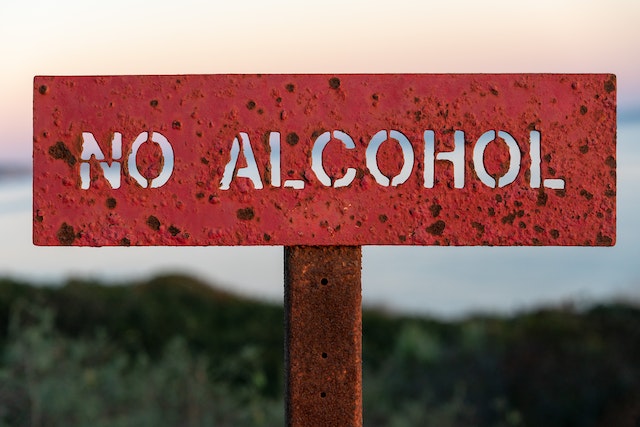If you are wondering why you should join Dry January, you should know that you will enjoy several health benefits. These benefits include improving your immune system, getting back into a good sleeping routine, and reducing caloric intake.
Contents
Reduce Alcohol-induced Inflammation
Alcohol-induced inflammation can lead to a variety of health conditions. If you drink, it’s essential to learn more about the effects of alcohol on your body. By managing your consumption, you can prevent long-lasting inflammation.
Inflammation is a natural process that your body uses to defend itself against potential harm. It involves the production of inflammatory cells to destroy harmful intruders.
Drinking excessively can cause inflammation throughout the body. Over time, this can lead to chronic, low-grade inflammation that contributes to various diseases and conditions, including cardiovascular disease, cancer, and Type 2 diabetes. Chronic inflammation also damages healthy tissues.
Fortunately, reducing your alcohol intake can help you fight inflammation. You can do this through “dry January,” a month-long challenge to abstain from drinking.
Dry January is a public health initiative that began in 2012. This year, nearly one in five U.S. adults who are legally allowed to drink reported taking part in the “Dry January” challenge in February 2022.
Those who participated in Dry January reported that the benefits of dry January included improved sleep, increased energy, and weight loss. A Dry January study found that these improvements were sustained through six months of abstinence.
Improve your Immune System
Dry January is a month-long period of sobriety that can be a great way to boost your immune system. It can also help you reassess your relationship with alcohol and get back on track with healthy habits.
The benefits of drinking less include a lower risk of cardiovascular disease, liver disease, and brain cell damage. In addition, it may improve your mood and boost your confidence. And by limiting your consumption of alcohol, you’ll make it easier to kick the habit in the long run.
While there’s no denying that alcohol is a delicious drink, there’s a lot of truth to the idea that too much can harm your body. One night of binge drinking can degrade your ability to fight off infections for a full day.
For example, excessive alcohol consumption can affect your sleep, which is critical for the human body. Alcohol also impairs REM sleep, the most crucial sleep cycle.
But alcohol can also have a negative effect on your mental health. It can affect your decision-making and coordination.
Cut Back on Caloric Intake.
If you’re looking to shed a few pounds, cutting back on caloric intake during Dry January may be just the ticket. However, this method is only for some. It’s also more complex than a diet and exercise routine.
A study at the University of Sussex found that, on average, people who abstain from alcohol during Dry January are healthier in both physical and mental categories. They reported better sleep, better concentration, and improved mood.
The idea of cutting out alcohol might sound a little cliche, but many people have been overindulging over the holidays. This can lead to health problems down the road. For example, alcohol can contribute to liver disease and kidney damage. Also, alcohol is high in calories.
If you’re considering a Dry January, have a support system. Your family and friends can be a great source of encouragement. Find someone to talk to when you’re stressed or tempted to cheat.
It’s also a good idea to keep a daily log of your drinking and activity. You’ll get to know how your body responds to alcohol, and you might be able to pinpoint areas for improvement.
Get Back into a Healthy Sleep Routine.
Dry January is a month-long challenge designed to help people get back into a healthy sleep routine. Drinking alcohol can interfere with a person’s sleep, so the idea is to cut back or quit during the month. The benefits include better sleep, weight loss, and overall wellness.
It is essential to avoid a cold turkey approach. Instead, schedule non-alcoholic activities during the time you would otherwise be drinking. You can also seek assistance from a telemedicine-based coaching program.
There are a variety of health benefits to cutting back on alcohol. For example, you can reduce cholesterol, improve cardiovascular health, and reduce cancer risk.
Another reason to reduce drinking is that it will allow you to sleep better. Alcohol can have a diuretic effect, causing you to lose water and making it difficult to fall asleep.
Aside from getting more sleep, you’ll find that your skin looks better, you’ll be able to focus better, and you’ll be more mentally alert. Getting enough sleep is one of the most important things you can do to stay healthy.
Reassess your Relationship with Alcohol
If you’re looking to reassess your relationship with alcohol, Dry January is a great opportunity. Whether you’re interested in the health benefits or want to enjoy a month without alcohol, there are many reasons to try it.
Alcohol is a culturally ingrained part of our lives. It’s often considered fun to get together with friends and family. Drinking is also a coping mechanism for people dealing with social anxiety and depression. But it can be a problem if you use it to mask other issues.
During the COVID-19 pandemic, alcohol-related liver transplants and liver transplant recipients increased. Studies also suggest that drinking can hurt your immune system.
As a result, a more moderate approach is best. However, if you need help quitting, it’s a good idea to seek medical advice. Behavioral therapy involves working with your healthcare provider to modify your drinking behaviors.
The first step in taking a more moderate approach is to realize that there are problems with your drinking. There are numerous ways to identify problematic drinking, including monitoring your feelings while drinking. Also, it’s essential to monitor your blood pressure and liver enzymes.



